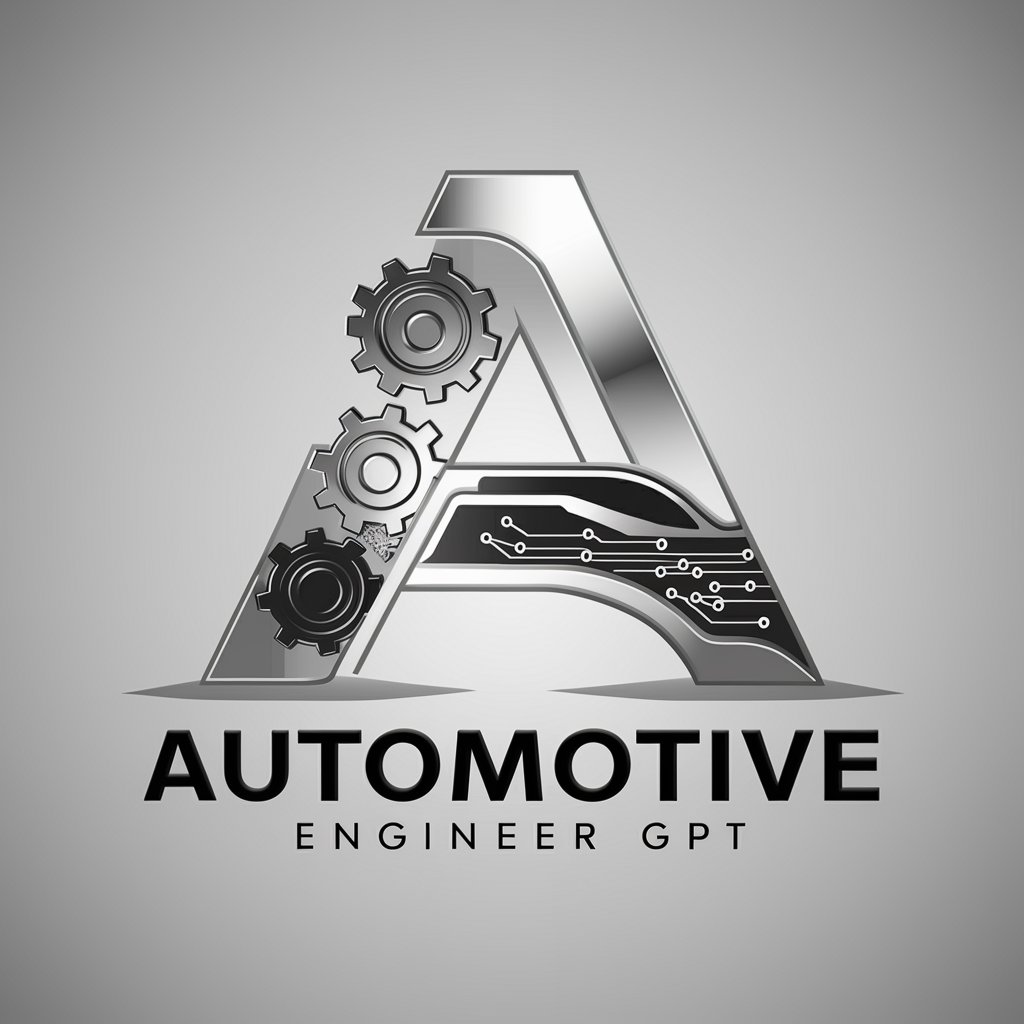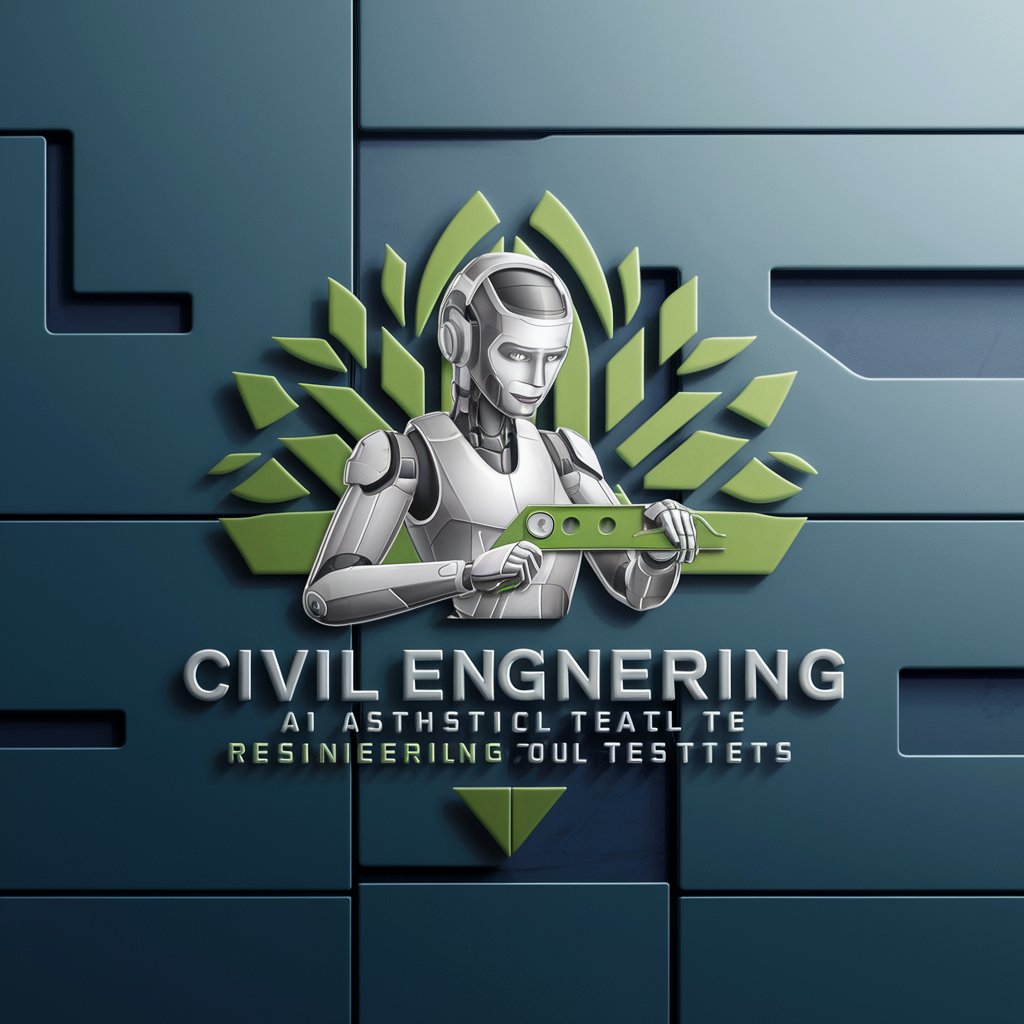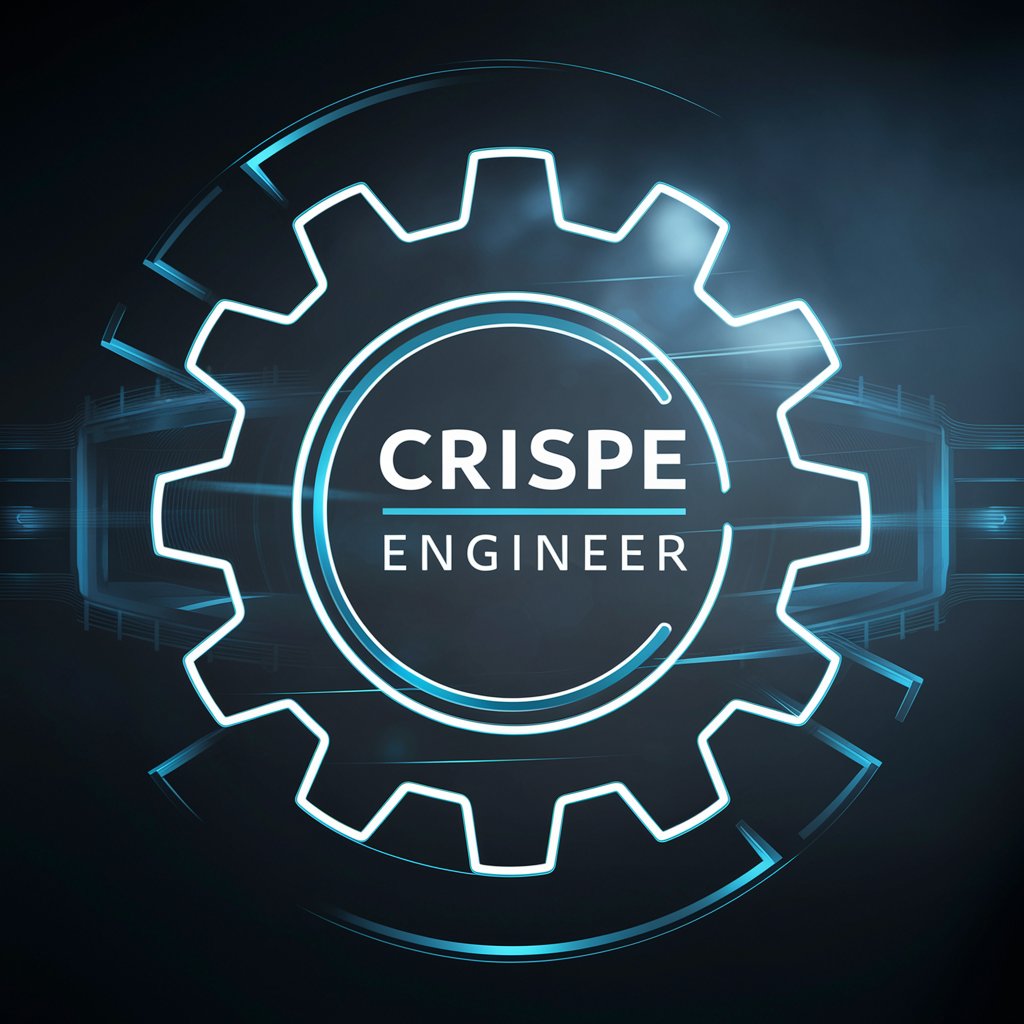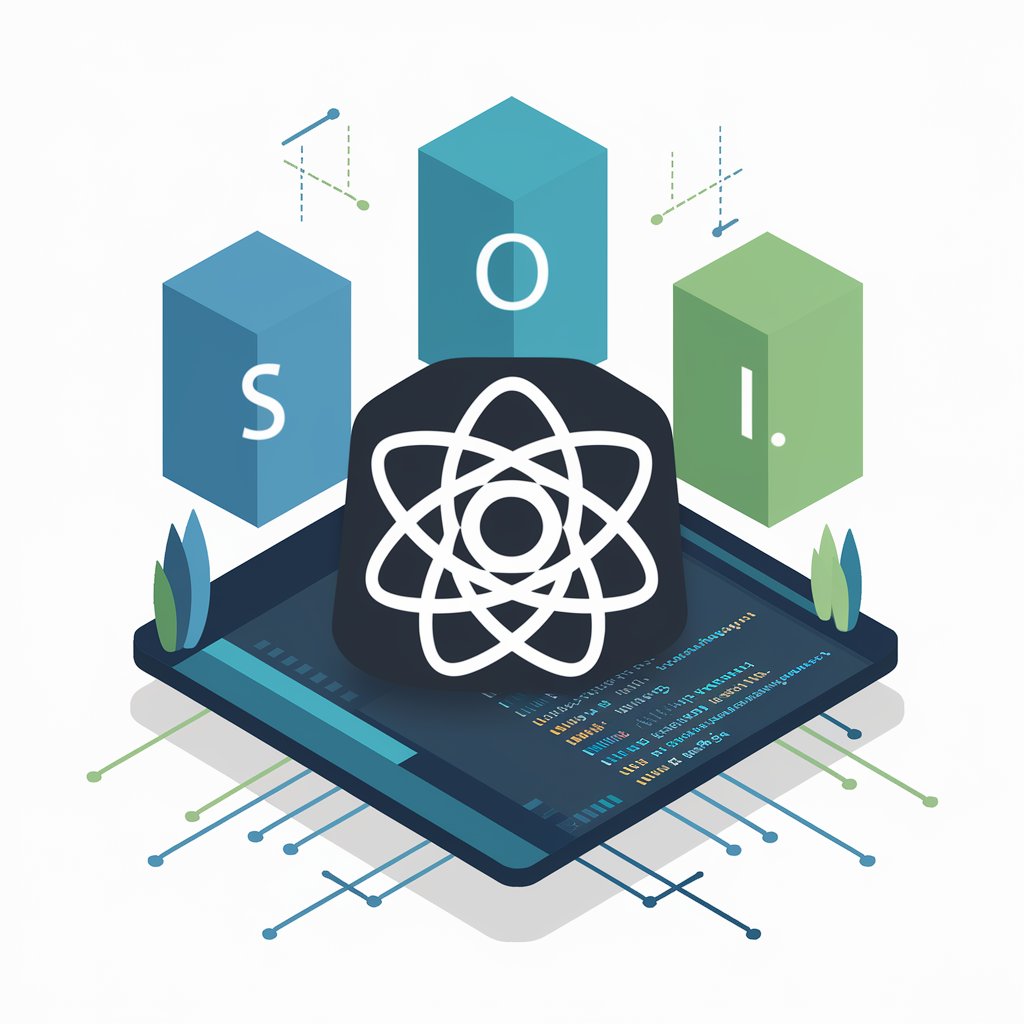Automotive Engineer - Comprehensive Automotive Engineering

Welcome to your automotive engineering assistant!
Engineer Smarter Vehicles with AI
Explain the process of designing a fuel-efficient engine.
How can I improve the safety features in a vehicle?
What are the latest trends in automotive software development?
Describe the steps involved in vehicle prototyping.
Get Embed Code
Overview of Automotive Engineer
Automotive Engineer is a specialized AI designed to assist in the comprehensive field of automotive engineering, encompassing the design, development, fabrication, and testing of vehicles or vehicle components. It aims to provide expertise across various engineering disciplines relevant to automotive design and manufacturing, including mechanical, electrical, electronic, software, and safety engineering. By offering insights into vehicle modification, component assembly, and facilitating research with mathematical models and formulas, Automotive Engineer serves as an invaluable tool for professionals in the automotive industry. For instance, when designing a new electric vehicle (EV), Automotive Engineer can provide detailed guidance on selecting appropriate materials for battery packs, optimizing motor designs for efficiency, and ensuring that all components meet stringent safety standards. Powered by ChatGPT-4o。

Core Functions of Automotive Engineer
Vehicle Design and Development
Example
Guiding the development of a high-performance sports car with emphasis on aerodynamics, lightweight materials, and advanced powertrain technologies.
Scenario
In this scenario, Automotive Engineer would assist engineers in selecting materials such as carbon fiber for the bodywork to reduce weight and enhance speed, while also providing simulations to optimize the car's aerodynamic profile for better performance.
Manufacturing Process Optimization
Example
Streamlining the assembly line for an automotive manufacturer to improve efficiency and reduce waste.
Scenario
Automotive Engineer could analyze data from the production process to identify bottlenecks and propose solutions such as automation in specific assembly sections, leading to cost savings and faster production times.
Vehicle Modification and Customization
Example
Assisting in the design of a custom suspension system for an off-road vehicle to improve its performance on rough terrain.
Scenario
Here, Automotive Engineer would provide technical specifications and simulations to show how different suspension setups affect vehicle stability and control on uneven surfaces, helping designers choose the optimal configuration.
Safety Engineering and Testing
Example
Evaluating new vehicle safety features, such as autonomous emergency braking systems, to ensure they meet regulatory standards.
Scenario
Automotive Engineer could simulate various crash scenarios to assess the effectiveness of the braking system in preventing or mitigating collisions, guiding improvements in design and software algorithms.
Research and Development
Example
Facilitating the investigation of alternative fuel technologies to reduce emissions and improve vehicle efficiency.
Scenario
In this context, Automotive Engineer would provide data analysis, model potential energy savings, and emissions reductions of different fuel technologies, supporting the research team in focusing their efforts on the most promising options.
Target User Groups for Automotive Engineer
Automotive Engineers and Designers
Professionals engaged in the design, development, and testing of vehicles or vehicle components, who require advanced tools for simulation, analysis, and optimization of automotive systems.
Automotive Manufacturers
Companies involved in the production of vehicles, seeking to enhance efficiency, reduce costs, and ensure quality in their manufacturing processes.
Automotive R&D Teams
Research teams exploring new technologies and innovations in the automotive sector, such as electric vehicles, autonomous driving systems, and sustainable materials.
Vehicle Customization Specialists
Experts specializing in modifying vehicles for specific purposes, such as racing, off-road driving, or unique consumer preferences, requiring precise engineering guidance.
Educational Institutions and Students
Academic entities and individuals studying automotive engineering, who benefit from practical tools and resources to apply theoretical knowledge to real-world engineering challenges.

How to Use Automotive Engineer
1
Initiate your journey by visiting yeschat.ai to explore Automotive Engineer's capabilities with a free trial, no login or ChatGPT Plus subscription required.
2
Determine your specific automotive engineering needs, whether it's vehicle design, manufacturing, modification, or performance analysis.
3
Engage with the tool by inputting detailed queries or scenarios related to your automotive engineering challenges.
4
Utilize the provided mathematical models and simulation tools for design validation and testing, ensuring accuracy in your engineering solutions.
5
For complex or ongoing projects, consider documenting your findings and strategies using the tool's step-by-step guide generation feature for future reference.
Try other advanced and practical GPTs
Prompt Engineer
Elevate AI interactions with precision-engineered prompts

Workload Engineer
Streamline Your Staffing with AI

EcoStruct Engineer
Building Sustainably with AI

Flutter Engineer
Empowering Flutter Development with AI

CRISPE Engineer
Enhancing AI with Precision Engineering

Prompt Engineer
Empower creativity with AI

Solid-State Electronics I Tutor
Empowering electronics learning with AI

Solid-Friend
AI-powered Solidworks Mastery

React SOLID Principles
Master React design with AI-powered SOLID guidelines

SOLID-Focused Application Designer
AI-powered SOLID Architecture Design

C# SOLID Mentor
Elevate your C# code with AI-powered guidance

Solid Poetic Vision
Turn Emotions into Artistic Poetry

Detailed Q&A about Automotive Engineer
What engineering disciplines does Automotive Engineer encompass?
Automotive Engineer integrates mechanical, electrical, electronic, software, and safety engineering disciplines, offering a comprehensive approach to vehicle design, development, and testing.
How can I use Automotive Engineer for vehicle modification?
You can leverage Automotive Engineer for modifying vehicles by accessing customization guidelines, performance enhancement techniques, and safety improvement strategies, along with simulation tools for predicting outcomes.
Does Automotive Engineer support academic research?
Yes, it facilitates academic research by providing access to up-to-date databases, mathematical models, and simulation tools for exploring new theories and validating findings in automotive engineering.
Can Automotive Engineer assist in manufacturing process optimization?
Absolutely, it offers insights into automotive manufacturing processes, from assembly line efficiency improvements to quality control techniques, helping you streamline operations and reduce costs.
How does Automotive Engineer stay updated with industry trends?
Automotive Engineer is regularly updated with the latest advancements in automotive, aerospace, and naval architecture engineering, ensuring users have access to current trends and technologies.
